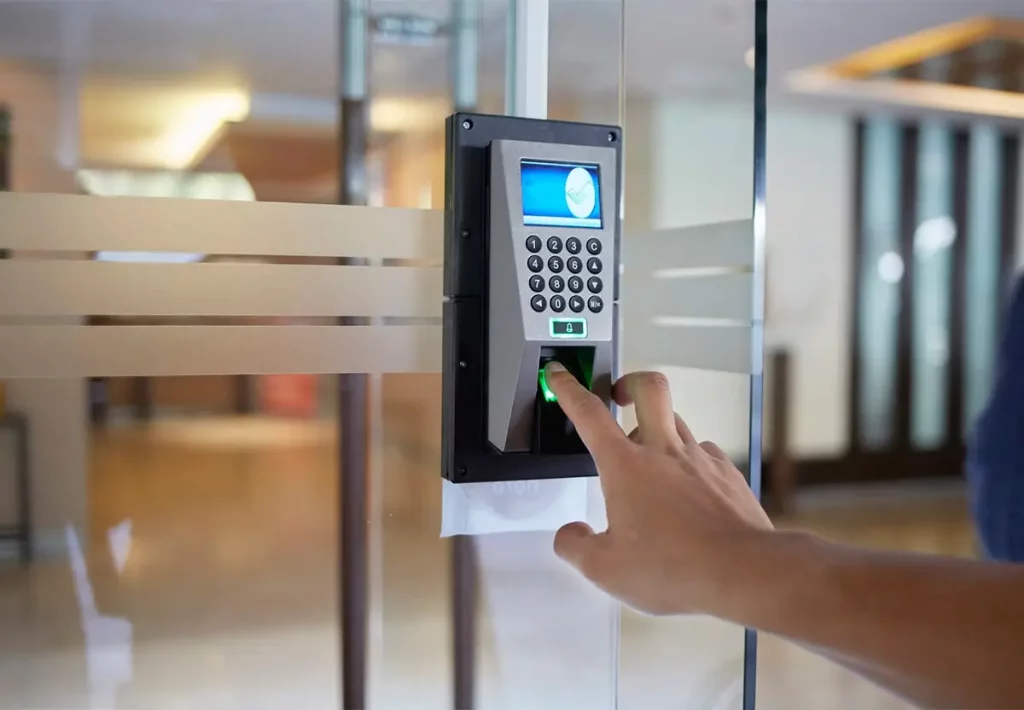Access control systems are typically used for offices and commercial sites but can be equally useful for residential properties as well.
As these systems are highly adaptable, they can be tailored to meet the requirements of residential properties regardless of their size. With the help of these systems, you can provide or restrict access to people, monitor maids or healthcare providers and any service provider, and offer foolproof security to your loved ones. Before we look at whether residential properties can benefit from access control systems, let us look at the various components of these systems.
Components of a residential access control system
Whether it is a commercial or a residential access control system, the components are almost the same. These include:
- Authentication devices such as Fobs, keycards, keypads, and biometric readers such as those used for Commercial Door Entry Systems.
- Reading devices that detect authentication devices. These can be of various types, including touchless, swipe, and proximity readers.
- A central control panel to manage and control the entire system.
- A software that allows the owner/authorized person to manage and configure user profiles, access rights, and other features. It also allows the user to receive reports and carry out monitoring.
- A locking mechanism for locking/unlocking entry/exit points of a property. These can be magnetic, electric, or electronic. Some of these can be controlled remotely with the help of smart devices.
- A power supply, including a backup system, in case of power outages.
- Other components include wiring, cabling, and wireless network.
An access control system can be further linked to other security devices, such as alarm systems, CCTV cameras, and sensors, to create a complete and highly effective surveillance and monitoring system for residential properties.
Do residential properties need access control systems?
Residential properties are not less risky than commercial ones when it comes to theft, unauthorized access, arson, and burglaries. They might be riskier than commercial properties as the latter usually stay crowded. A residential access control system can offer you several benefits, which include the following:
Security and Control
Access control systems can provide households with considerable control over their security. You can provide keycards to your family members, including children, which gives them the option to access the property at any time without compromising security. If you are worried about your children losing the keycards, you can install a keypad and make them memorize the security code. Installing a biometric reader can be even better, as only authorized fingerprints will provide access to your home. By choosing any of these arrangements, you can prevent illegal or unauthorized access to your home. The system also allows you to make modifications. For example, if you want to add or delete someone from the authorized personnel, you can easily do that.
Effective monitoring
Integrating your access control system with remote monitoring can help you keep an eye on the activities in your home. You can even learn when your children return home. You can monitor the timings of any house help you have hired or authorize access to a service provider. Alarm systems synced with your access system can issue alerts if any unauthorized person tries to access your property. The footage and images can be recorded and stored for future reference, which can help you identify any potential threats. Access systems can also be beneficial if someone sick at home requires frequent medical assistance or if you have hired a babysitter for your children.
Integration with other security components
Access control systems should not be considered as a complete security system. They are, instead, a major component of security systems and can help create a complete system for your home that mitigates the risk of unauthorized access, theft, and burglary. Other security components which can be integrated with access control systems include:
- CCTV cameras
- Remote monitoring systems
- Sensors such as motion or heat sensors.
- Alarm systems, including fire and burglary alarms.
- A central command control system.
Together, the above components can ensure that you control the access to your residence, allow safe entry to your family members, modify the authorization list, and keep complete control over the security of your home.

